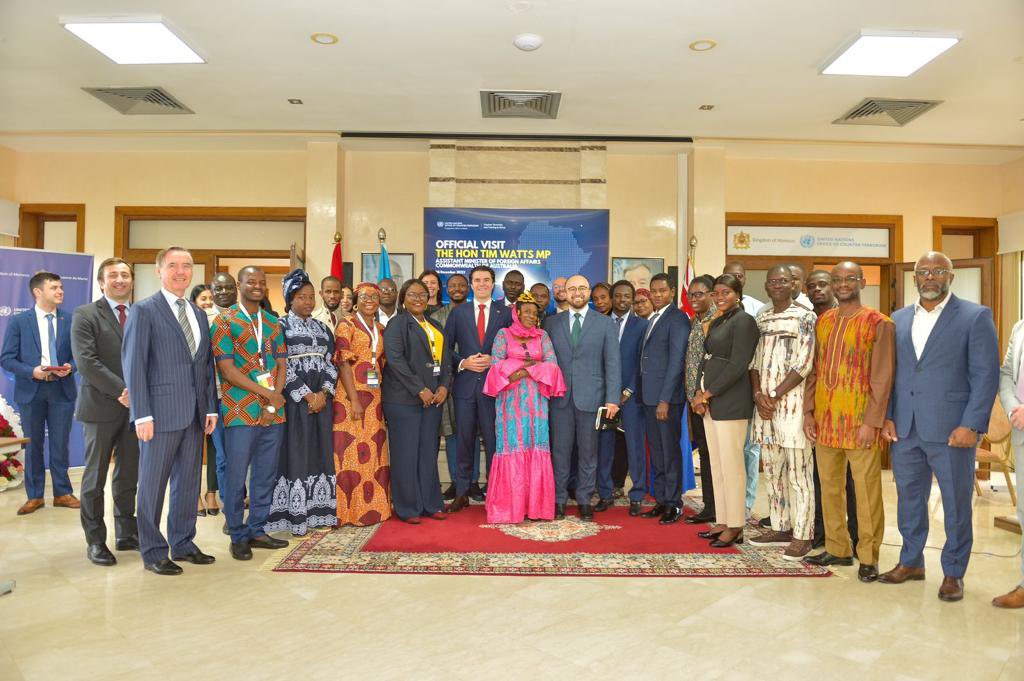Africa’s voice is growing louder. And Australia is now listening.
Comprising more than a quarter of UN member states, African nations have a strong voice in global affairs. By 2050, a quarter of the world’s population will be African.
Australia has important economic, security, international political and multilateral interests with Africa. These matter in their own right. And they also have implications for our region. Partnerships with African countries will be essential in tackling challenges such as climate change.
This week, I am making my first visit to the continent as assistant foreign minister for discussions in Morocco, Ghana and South Africa.
My trip will be a chance to discuss our many shared interests—and look to new opportunities for engagement.
Wherever you look, Africa is looming larger in world affairs. It is growing in importance economically, due to its growing middle class and youthful demographics. It is increasingly vital strategically, as a resource-rich continent that can play a leading role in the global energy transition. Its influence is growing politically, as African voices speak out in the multilateral system.
In recent weeks, the eyes of the world were focused on Egypt for the UN Climate Change Conference COP27. This was Africa’s COP. We heard powerful speeches from African heads of state, imploring the world to act on climate change. Before that, leaders from 54 countries across the world gathered for the Commonwealth Heads of Government Meeting in Rwanda.
These international meetings in Africa brought countries together to deal with some of the major challenges of our time. They were hosted by African nations, reflecting an African continent whose capacity and influence is strong and increasing. African leaders are also prominent throughout the multilateral system, including World Trade Organization Director-General Ngozi Okonjo-Iweala, whom the government was pleased to welcome to Australia last month.
As always, our foreign policy starts with who we are. Modern Australia is connected to the diverse continent of Africa—and Australia’s diverse communities provide a strong foundation for our strengthening ties with African nations. Our warm people-to-people and community connections are the building blocks for closer ties.
We now have four Australian players on our Socceroos side of proud African heritage—Garang Kuol, Awer Mabil, Thomas Deng and Keanu Baccus. These extraordinary young men have overcome enormous challenges to make it to the top of their profession. And across Australia, there are half a million Australians of African heritage who make outstanding contributions to our country—as we’re watching play out in real time, and not just at the FIFA World Cup.
With an estimated middle class of 310 million people, Africa offers a significant trade diversification opportunity for Australian businesses. Australia’s two-way trade with Africa was valued at almost $10 billion last year, led by our major trade and investment relationship with South Africa. Major Australian companies including Flight Centre, Cotton On, Telstra and Zip are active in the South African market, while major mining firms BHP, Rio Tinto and Fortescue Metals Group have operations across Africa.
Many of our shared interests are also practical. To address the global food security crisis, we must learn from each other on our approaches to land use, resource management and water management. Australia is already working with African partners on innovative and climate-resilient agriculture through the Australian Centre for International Agricultural Research. And we have responded with $10 million in funding for life-saving support to the drought and food crisis affecting the Horn of Africa.
When it comes to our security interests, it is important that we manage the risks to Australians by building our understanding and strengthening our partnerships with African nations that are battling terrorist groups and violent extremism.
We must also look to the future. A wave of African entrepreneurs is driving innovation in the information technology sector, growing tech start-up funding and investment. The emergence of Nigeria, South Africa, Kenya and Egypt as major start-up hubs will provide opportunities for Australian businesses in new areas. Australia is linked to East Africa through the Indian Ocean, and the blue economy also offers significant opportunities. The African Continental Free Trade Area agreement will help to unlock future economic growth for countries across Africa and eventually allow Australian exporters to access Africa as a single market.
Australia will work with partners on this important continent in pursuit of a world that is stable, peaceful, prosperous and respectful of sovereignty, all underpinned by our strong people-to-people links as a diverse, multicultural nation. Our shared interests are clear and will only become stronger in the decades ahead.
Source : TheStrategist















